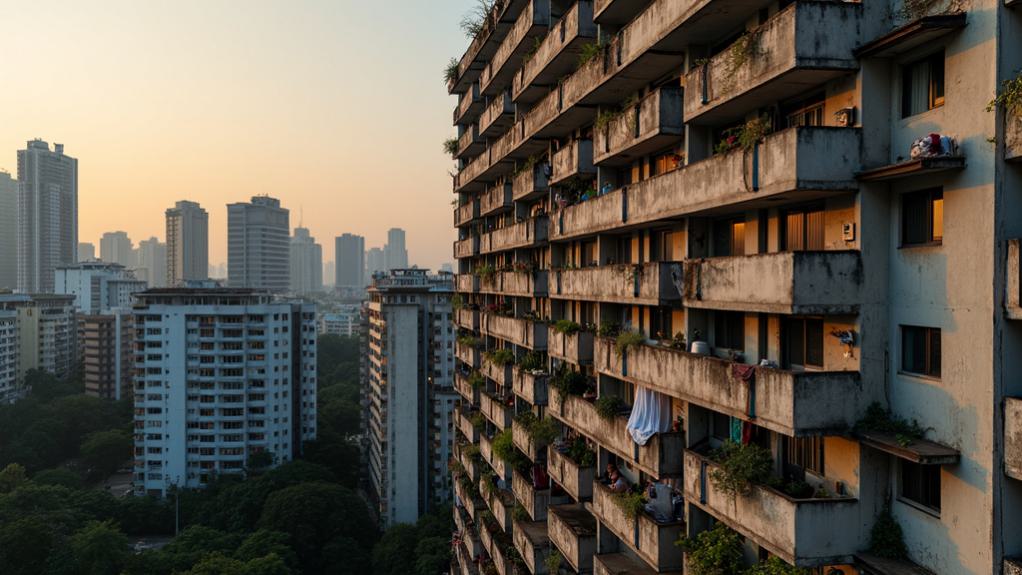Singapore’s once-promising Selective En bloc Redevelopment Scheme (SERS) for aging Housing and Development Board (HDB) flats has entered a period of significant deceleration, with governmental data revealing that merely 4-5% of all eligible HDB flats have been selected for redevelopment since the programme’s inception in 1995.
Singapore’s ambitious SERS program has stalled dramatically, with only a tiny fraction of eligible flats redeveloped since 1995.
Between 2008 and 2018, only 10 new SERS sites were announced, encompassing 7,883 flats, demonstrating the highly selective nature of the initiative that was originally designed to rejuvenate Singapore’s public housing landscape.
The slowing implementation rate presents a stark reality: at the current pace, the complete redevelopment of all flats constructed between 1971 and 1980 would require more than three centuries.
This deceleration is attributable to multiple factors, including the finite supply of suitable replacement sites, declining governmental financial resources allocated to the programme, and the diminishing pool of SERS-eligible blocks, most of which had already been selected by the end of the 2010s.
As an alternative strategy, the government has introduced the Voluntary Early Redevelopment Scheme (VERS), which is projected to commence around 2036. Notably, SERS participants benefit from special exemptions to the Minimum Occupation Period requirements that typically restrict HDB owners from selling their properties.
Unlike the compulsory nature of SERS, VERS will require at least 75% of flat owners in a precinct to consent before redevelopment can proceed. The scheme is designed to address the remaining 95% of older flats that were not selected for SERS, particularly targeting blocks with at least 70 years of lease expired.
For flat owners, the implications are substantial. Those fortunate enough to have their properties selected for SERS receive compensation based on independent market valuations, rehousing options in new developments at subsidized rates, and various financial support mechanisms. The government’s legal authority to implement SERS derives from the Land Acquisition Act of 1966, which provides the statutory basis for compulsory acquisition of property for public purposes.
Conversely, the vast majority of older flat owners must either await VERS implementation or face the inevitable depreciation of their property values as leases approach expiry. Banks have already begun imposing loan restrictions for flats with less than 35 years remaining on their leases, creating additional financial challenges for owners of aging properties.
The current situation underscores a fundamental shift in Singapore’s public housing redevelopment strategy, evolving from a selective, government-initiated approach to a more inclusive, resident-driven process that acknowledges the challenges posed by an aging housing stock in a land-scarce nation.





